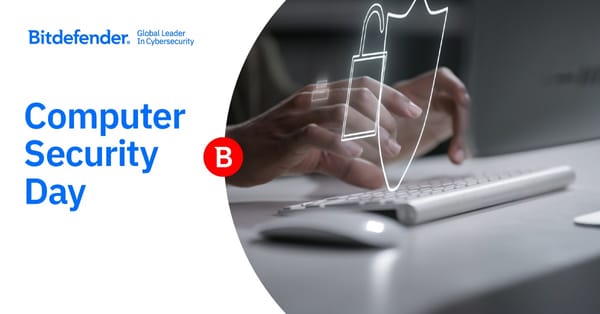Curious about Omegle? Here’s how the roulette-style chat platform can threaten your online privacy and security

Launched over a decade ago, the popular chat and video messaging app that lets individuals connect with strangers has gained traction among internet users dealing with social distancing and isolation during covid-19.
Although the rise in popularity wasn’t necessarily unexpected, the lack of moderation and age verification processes and parental control settings make this video and chat roulette platform a haven for online predators and digital miscreants.
Before we delve into the security and privacy risks you’re likely to be exposed to when using the platform, let’s look at its user base information, platform traffic and services.
Who uses Omegle?
According to the latest traffic summary, Omegle had 51.7 million unique visitors in May 2022 with about 29.89% users from the US, 9.95% from India, 5.12% from the Philippines, 4.52% from the UK and 3.48% from Germany.
Omegle’s audience has been tracked among various demographics, and despite a predominantly male audience of 63.91%, the number of female users accessing the platform has increased considerably during covid 19, reaching 36.09%.
While the largest age group of visitors is young adults aged 18 to 24 years old (39.91%), a BBC investigation from February 2021 found that children as young as seven or eight have been found using the platform adult section, regardless of the minimum age limit of 13.
Kids’ usage most likely increased due to the publicity Omegle had on TikTok – with many young influencers using the #omegle hashtag on their profiles while sharing their experiences when using the platforms.
What can users do on Omegle?
Omegle is an anonymous chat or video-chat service that lets you converse with random strangers – no registration needed. The platform offers a range of options including:
- An adult section that usually contains explicit materials and broadcasts
- A moderated chat section that, according to the platform itself, ‘is not perfect’
- An unmoderated chat option comes with a warning box stating that users must be 18 or older to enter
- College student chat option – only available for students with a verified ‘.edu’ email address
Now, let’s dive deep into the obvious darkside of Omegle by exposing security and privacy risks for children and adults alike.
Is Omegle safe? What are the dangers of using the platform?
Unfortunately, no. Omegle is not a safe social platform. Actually, it can be quite dangerous, especially for young adults and kids. As we already stated, the platform does not require users to register using an email address or any other identifier (except for the college student chat) and has no way to verify users’ ages.
Going online comes with risks, and Omegle brings plenty of security and privacy threats to individuals curious enough to explore the platform’s offerings. This includes:
- Exposure to inappropriate materials and careless exposure of data - Omegle has acknowledged that “predators have been known to use Omegle,” and the lack of regulation and moderation makes the platform a go-to destination for malicious individuals. Children are especially vulnerable and can be tricked into sharing personally identifiable information (names, age, phone numbers and location) and photos with strangers they meet online. At the same time, they can be exposed to lewd photos and inappropriate conversation topics such as drugs and sex
- Blackmail and stalking – anybody using the video and chat feature can take screenshots or record video without you knowing. Moreover, the IP connection of each user is saved and can be easily discovered by a tech-savvy individual to determine the location of the chat partner. Paired with sensitive information such as lewd photos or videos, and any other contact information provided by users during the chat sessions, it can allow malicious individuals to conduct blackmail attempts and even stalk people on other platforms
- Hacking attempts – Videos, messages and metadata (including text logs, IP addresses, timestamps and video screenshots user for moderation purposes) collected by Omegle can be exfiltrated and used to conduct various online crimes against users
Data collection and privacy. Does Omegle keep your conversations?
Unfortunately, conversations and interactions on Omegle are not truly anonymous, as the platform collects a wide variety of data, including:
- Saved chatlogs that may contain any category of personally identifiable information shared during the chat session
- Online identifiers such as cookies and IP addresses may be disclosed to law enforcement and other service providers
- College domain name when using College mode. This too can be shared with various third parties and others who use this feature
- Internet activity such as interactions with the platform and ads and browsing history
- Geolocation data based on your IP address
- Sensory data including screenshots of your video stream and chats that, although used for moderation purposes, can also be shared with the service provider and police
Data retention and kids’ personal information
According to Omegle’s privacy policy, the platform will usually retain personal information for 120 days for regular users. However, for individuals who’ve used the save chatlog feature, their data, including online identifiers and IP addresses, “are retained indefinitely.”
Regarding children’s information, Omegle says it does not willingly collect or store personal information for users under the age of 13 and encourages parents or guardians to closely monitor kids’ internet usage, making sure they never share private data online.
The platform also instructs parents who believe their child has provided any information to send an email via [email protected].
How to stay safe on Omegle
When it comes to online interactions on Omegle, there’s no bulletproof way for your child to use it safely and avoid exposure to inappropriate and sexual behavior that can have a traumatic impact. As such, we recommend making sure your child avoids the platform and similar services. For peace of mind, you can use a parental control monitoring service to ensure that minor children do not interact with the platform.
If you’re an adult who's curious about how the platform works and you think you can have a meaningful conversation with a stranger based on your common interests, stick to these good practices to ensure your privacy and safety online:
- Use a VPN to block individuals from discovering your real IP address
- Carefully read the privacy policy
- Use a security solution to block malicious links you may access during chat sessions
- Don’t provide your email address, phone number, photos, videos, financial data or any information that can be used to harm you
- Report malicious behavior to Omegle and the police
How Bitdefender can help
Bitdefender all-in-one security plans protect all of your household devices from malicious and fraudulent activity with award-winning antimalware protection and advanced anti-fraud and anti-phishing filtering systems that warn you whenever you visit a website that may try to scam you.
You can protect up to 10 devices and benefit from parental control features to ensure your kids doesn’t access age-inappropriate content online. Subscribers get a powerful VPN with unlimited traffic for their PC, smartphone and tablet plus a handy Password Manager to help you store your sensitive data passwords, among many other features depending on the chosen plan.
Netizens who need help keeping track of their digital identity can also opt for our Digital Identity Protection tool to check if their personal data has been leaked online or is part of a data breach. With real-time data breach monitoring for up to five email addresses, users can stay on top of any privacy risks and act quickly to protect their identity and financial wellbeing.
tags
Author
Alina is a history buff passionate about cybersecurity and anything sci-fi, advocating Bitdefender technologies and solutions. She spends most of her time between her two feline friends and traveling.
View all postsRight now Top posts
How to Protect Your WhatsApp from Hackers and Scammers – 8 Key Settings and Best Practices
April 03, 2025
Outpacing Cyberthreats: Bitdefender Together with Scuderia Ferrari HP in 2025
March 12, 2025
Streamjacking Scams On YouTube Leverage CS2 Pro Player Championships to Defraud Gamers
February 20, 2025
How to Identify and Protect Yourself from Gaming Laptop Scams
February 11, 2025
FOLLOW US ON SOCIAL MEDIA
You might also like
Bookmarks







